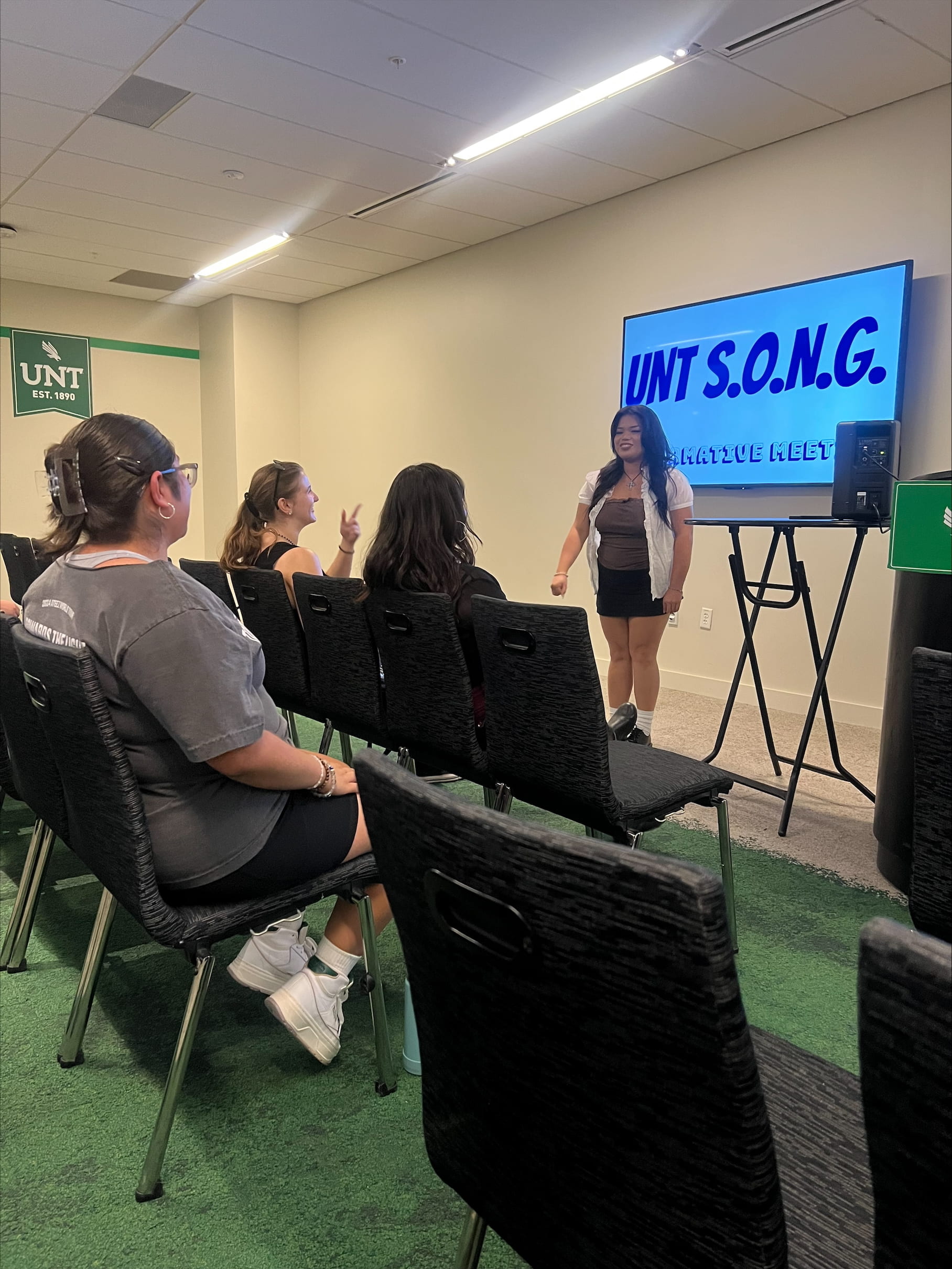
DENTON (UNT), Texas — The University of North Texas Second Opportunity Networking Group (S.O.N.G.) provides resources and support to students whose academic and career progress is impacted by past legal issues or encounters with the justice system.
"S.O.N.G. provides resource support and — perhaps most importantly — community for UNT students trying to overcome the obstacles that having a criminal record can present to those trying to complete their education," said Adam Trahan, professor and chair of UNT’s Department of Criminal Justice.
UNT graduate student and S.O.N.G president David Ramirez said that the group holds deep, personal meaning for him as he’s driven by his passion for the community in which he grew up.
“I come from a neighborhood where I've witnessed many individuals, including myself, become caught up in the justice system,” Ramirez said. “We’re here to help individuals who encounter challenges in shaping their future due to past experiences.”
The student organization has organized events featuring speakers like Christopher Scott, who was wrongfully convicted, and David Garlock, a criminal justice reform advocate, who shared their experiences with the UNT community.
“Our goal is to inspire tangible, meaningful change and encourage others to do the same,” Ramirez said. “Our leadership team’s varied academic backgrounds — two in psychology, two in criminal justice, and a business-focused historian — also help broaden the perspective of our work.”
Ramirez’s studies in criminal justice have deepened his understanding of courtrooms and the correctional system, while connecting him with people who have firsthand experiences, either working within or affected by the justice system. His commitment to making a meaningful impact through S.O.N.G has grown stronger — particularly his focus on wrongful convictions, immigration and child custody cases as he has a personal stake in the latter.
“Despite the many students with similar backgrounds on campus, conversations about such experiences are often rare because of the stigma attached to them,” Ramirez said. “S.O.N.G. provides a safe space for those willing to share their stories or learn about the resources we offer.”